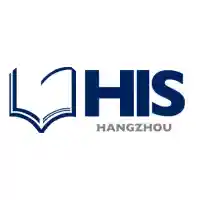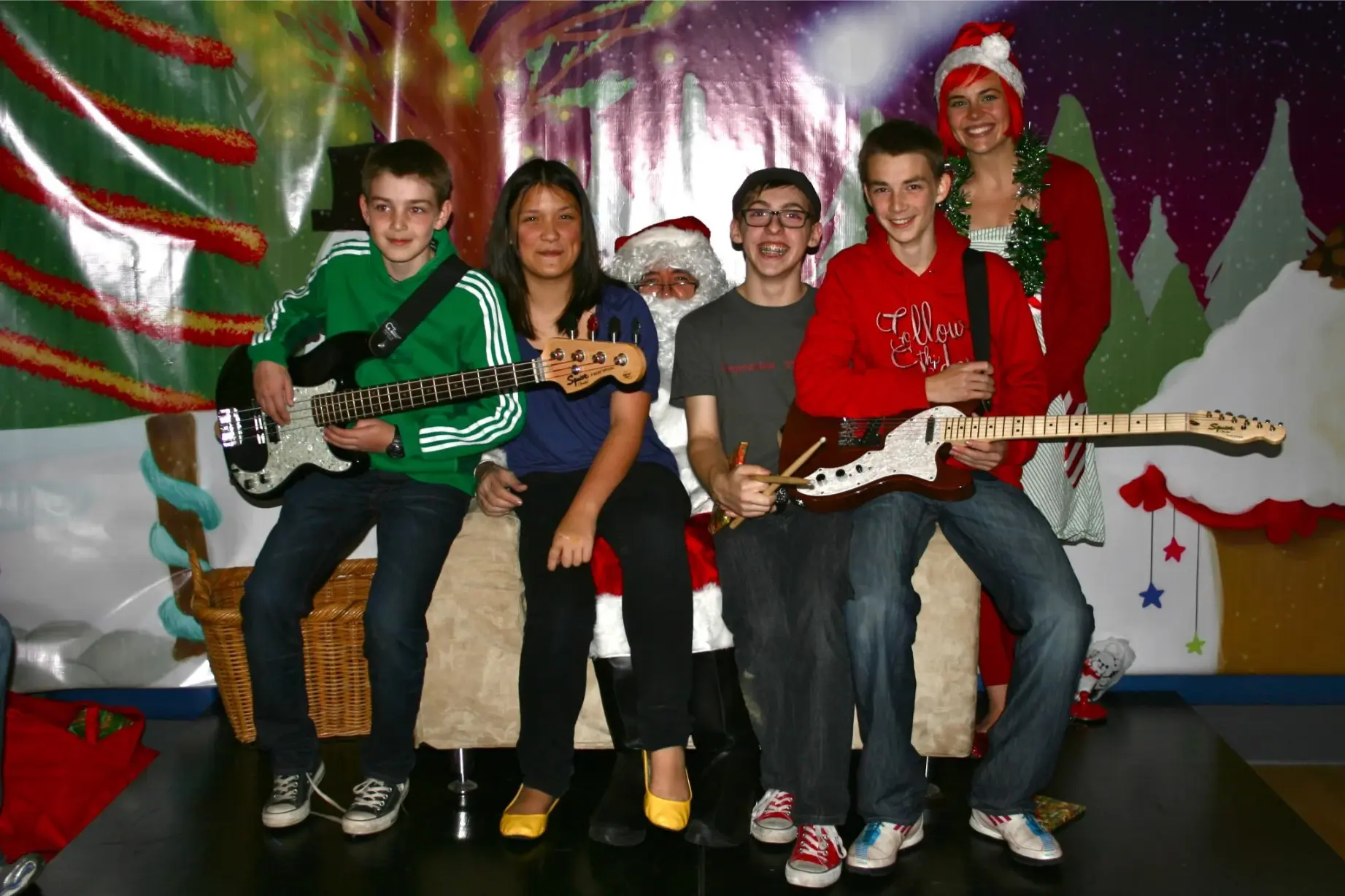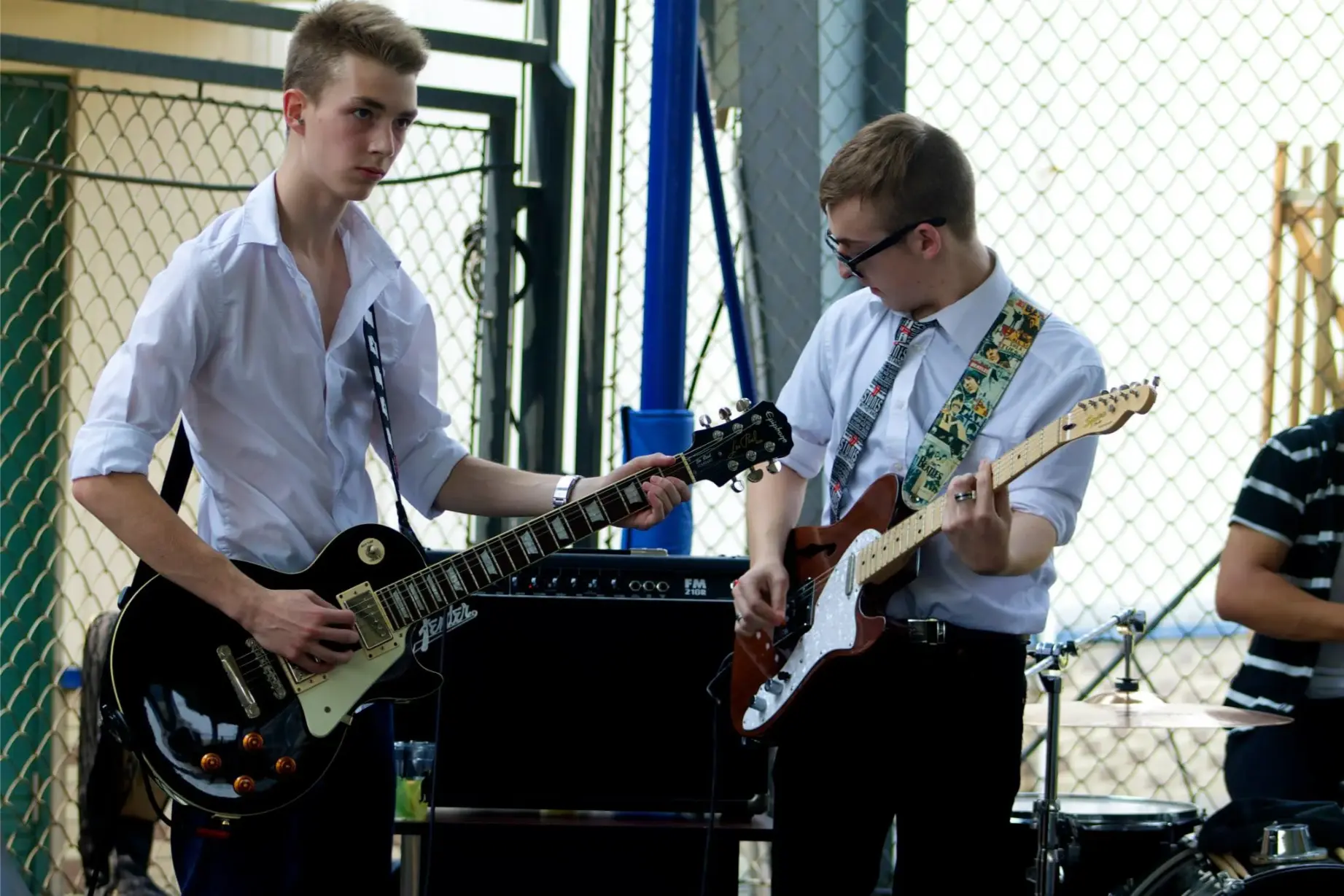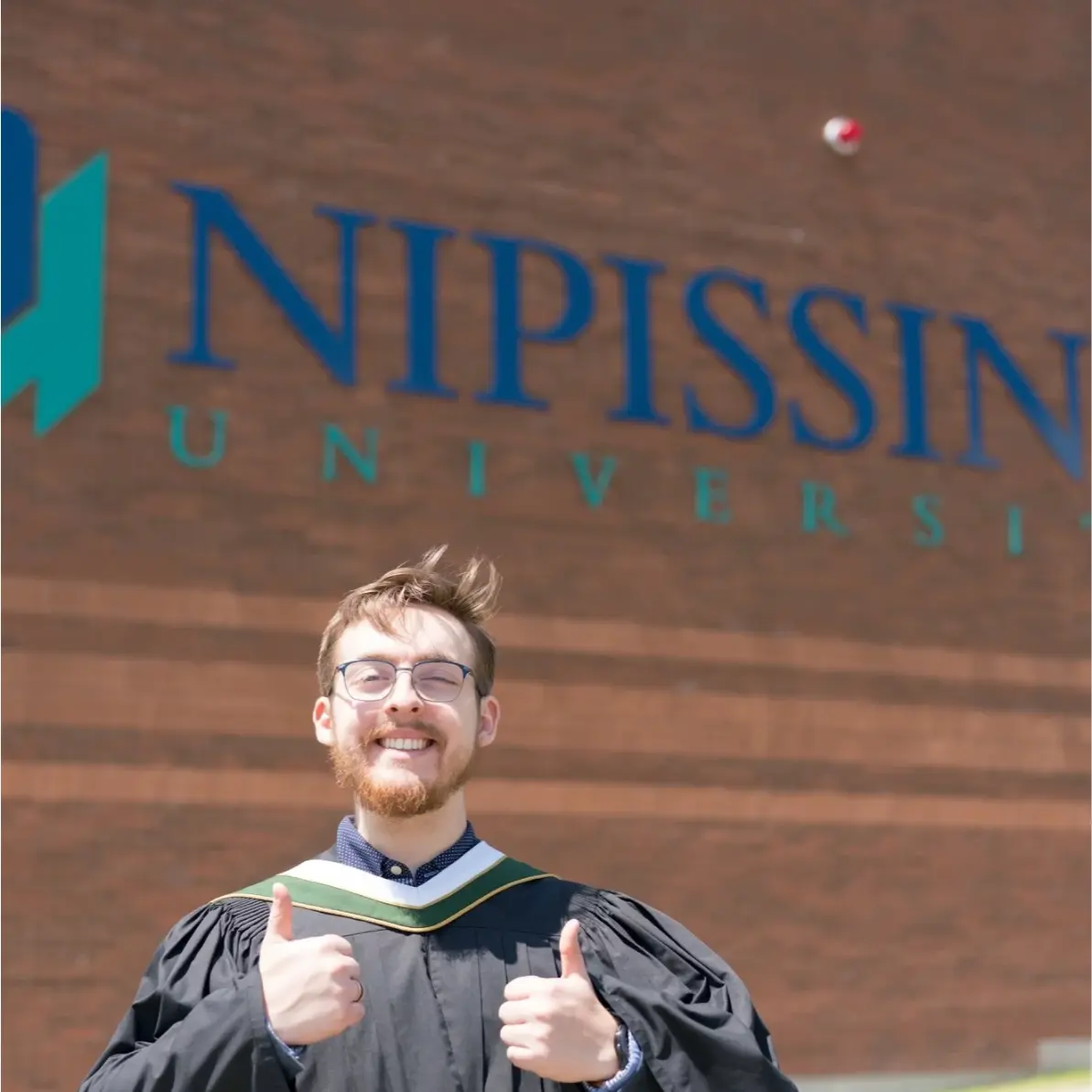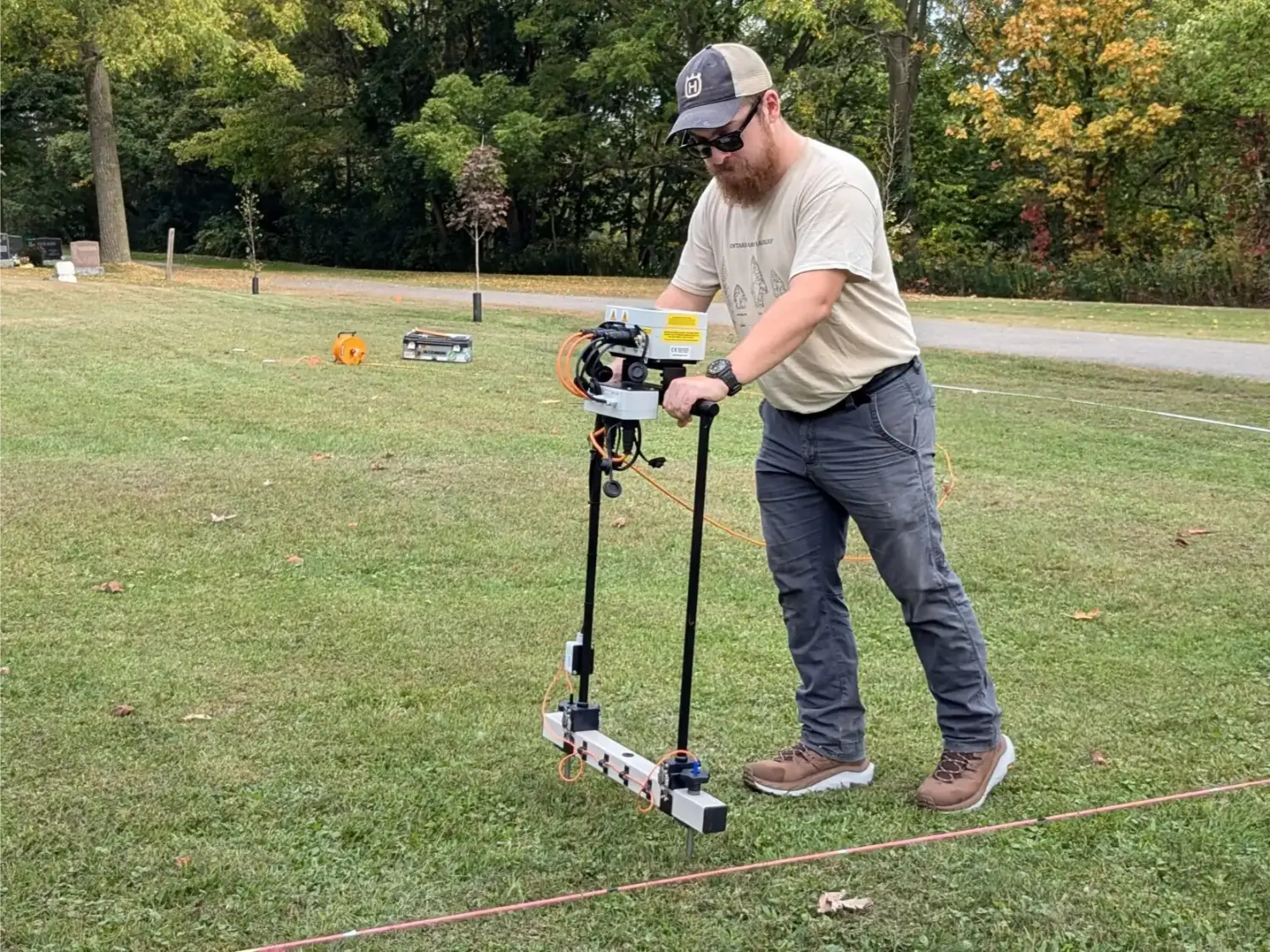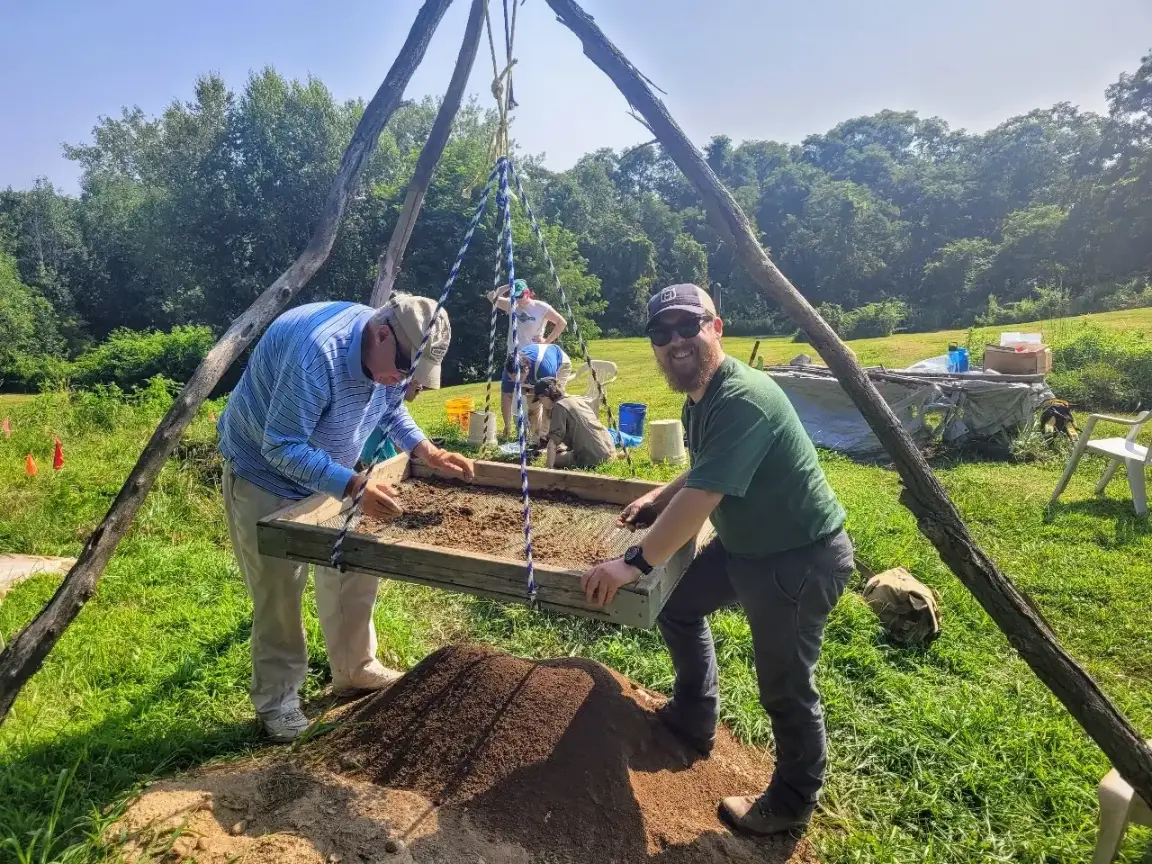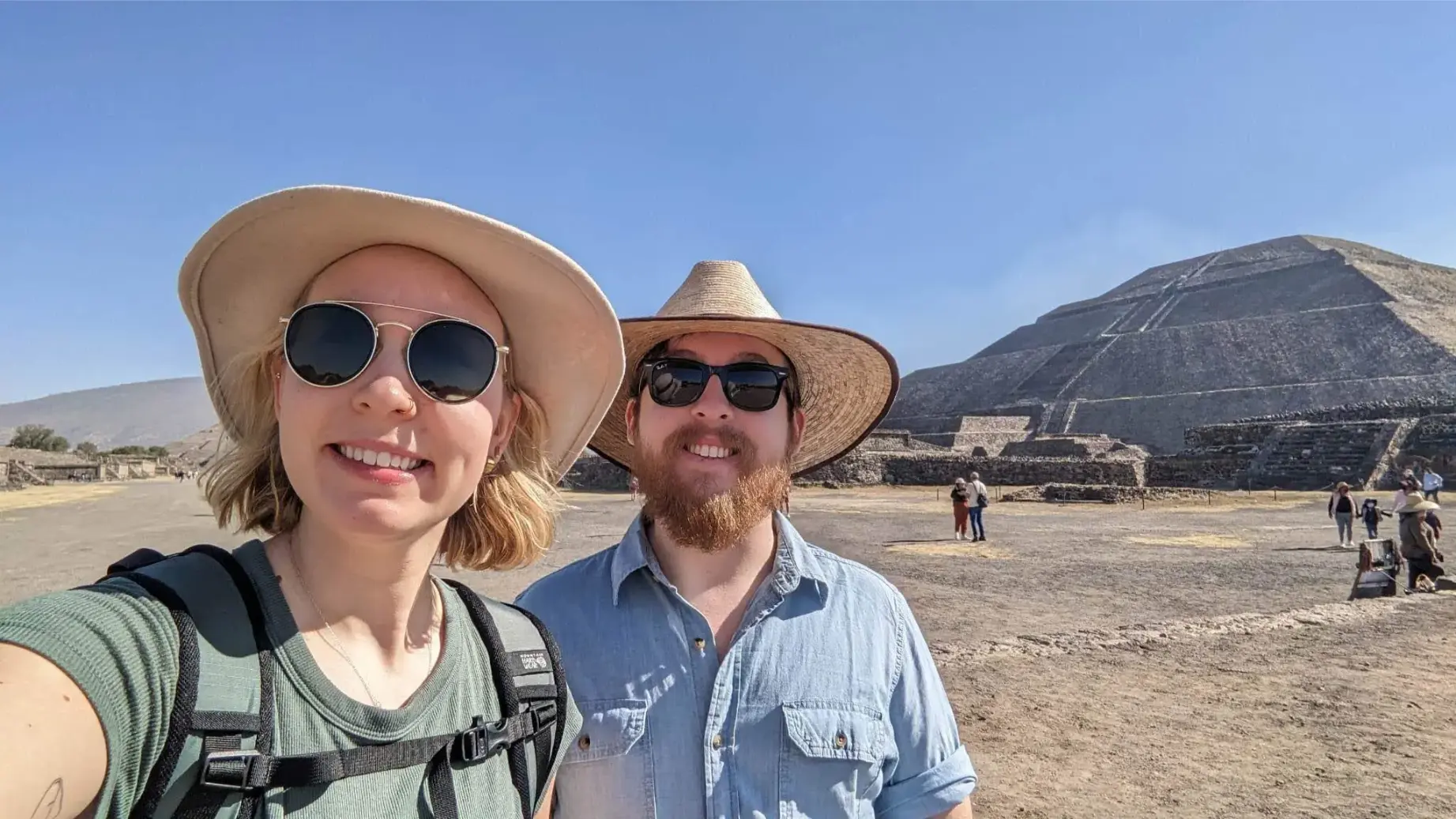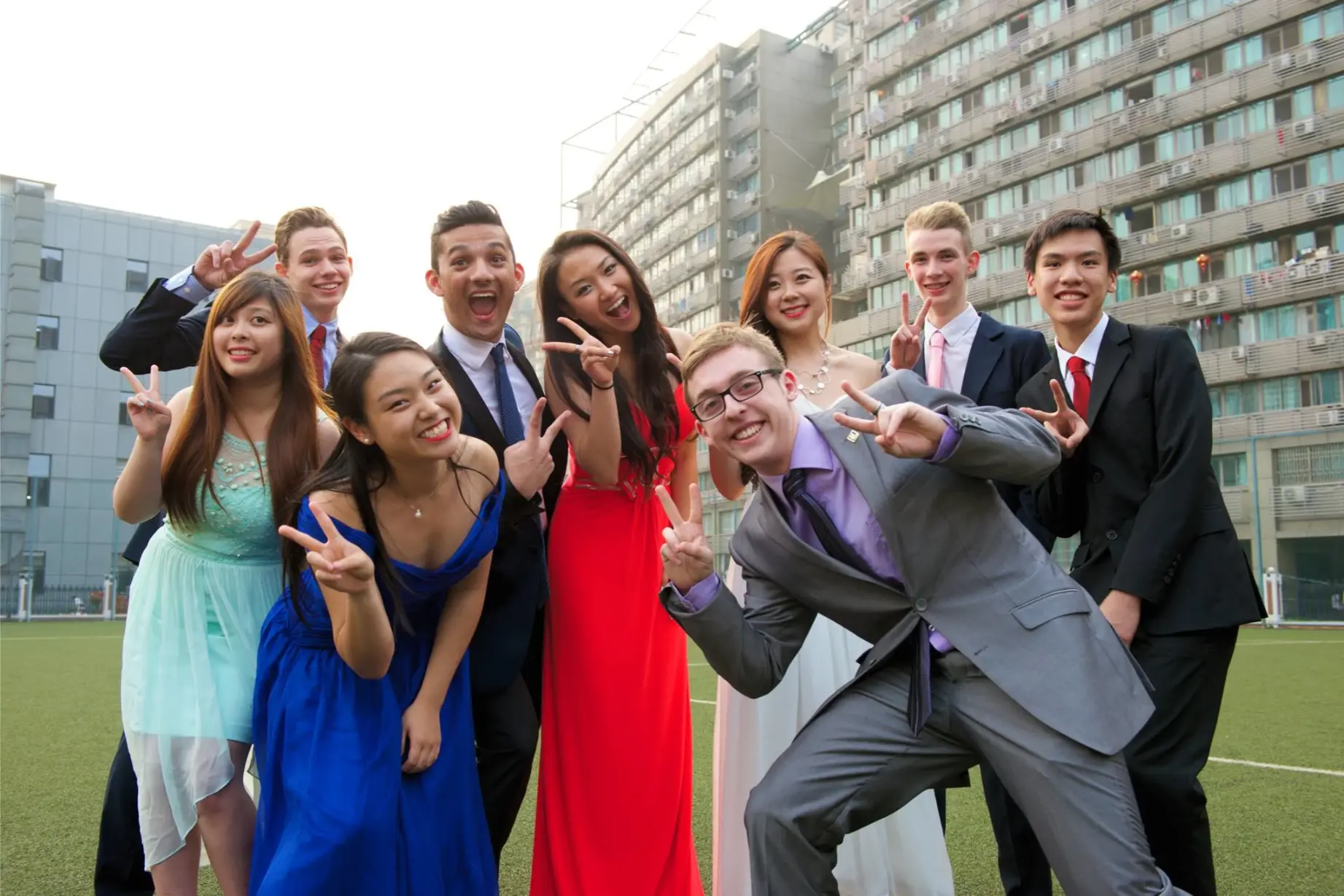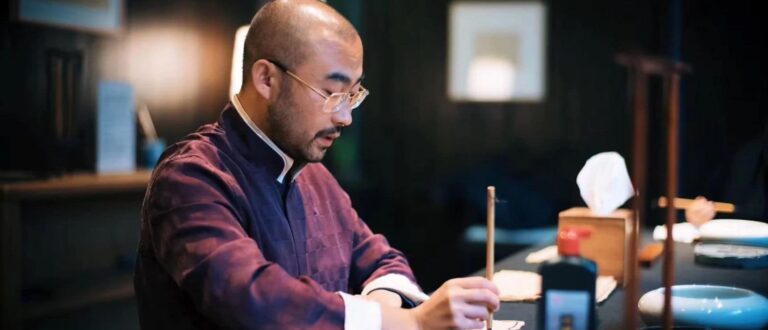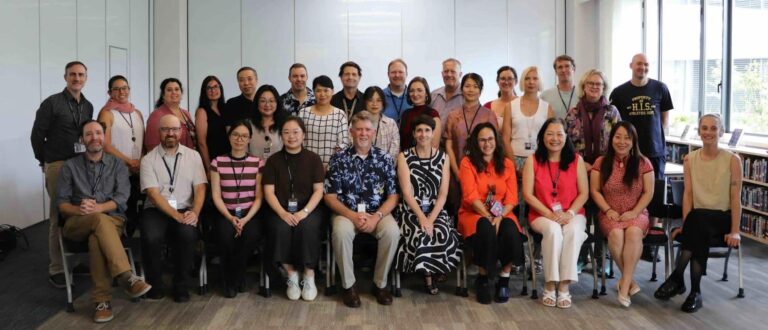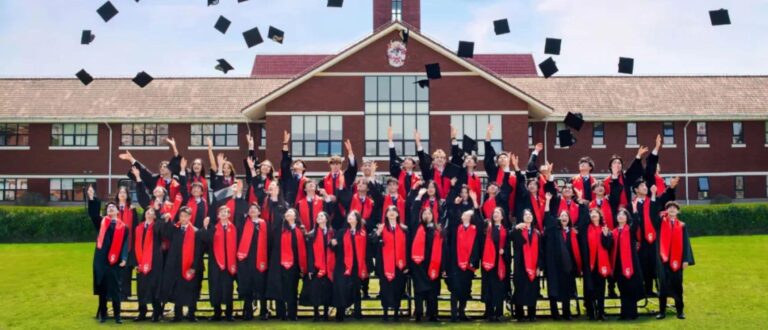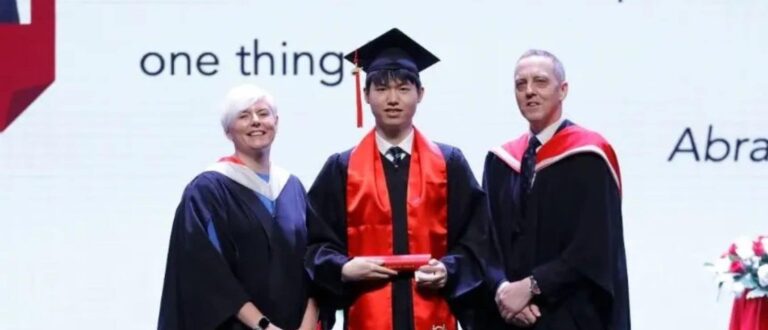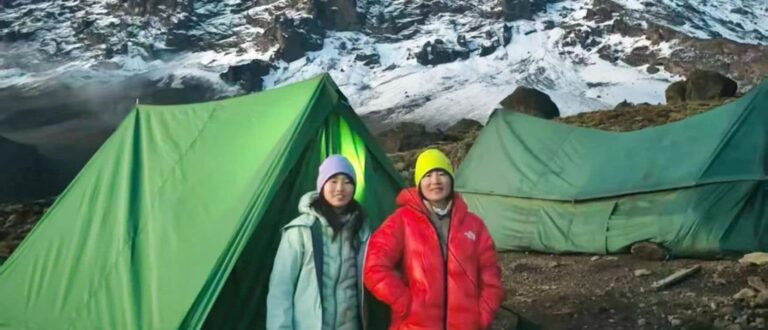An archeologist by day and rock guitarist by night, Isaac Bender is an Hangzhou International School alum who can truly do it all! You might remember him as the drummer of HIS’s coolest rock band— Gummistiefel. Today, Isaac has just finished his master’s degree at Western University in archaeology, all while continuing to make rock music.
Isaac is also one of our many HIS alumni making a real change in the world. Working alongside local First Nations communities, his master’s thesis contributed to national efforts to refine field methods to help inform the field operations of community-led investigations into missing children at Residential Schools in Canada. He is a stellar example of the kind of caring and open-minded students we are proud to have at HIS.
When did you attend HIS?
I attended HIS from 2010 to 2014, grades 9 to 12.
Can you share more about your experiences and journey at HIS?
Coming from smalltown Canada, the culture shock was immediate. I still remember having a bit of a meltdown shortly after arriving in China when I ordered what I was hoping would be a pepperoni pizza, only to have it arrive topped with corn and seafood.
That moment aside, the HIS community was incredibly welcoming and made the transition, and ultimately the four years we spent there, so easy and enjoyable.
From all of the PAFA events, to the fact that everyone knew everyone, to Mr Weinberg’s attempts to trick us into thinking we like writing mathematical proofs; HIS played a huge role in shaping who I am today, and I wouldn’t trade that experience for anything.
What are some of your favorite memories from your time at HIS?
My favourite memories were when Jakob, Julius, Maddie, Maiti, Kathryn, and I would take over Ms Lapwing, Mr Grice and Mrs Hah’s music room to practice with what I believe is probably the coolest rock band to ever come out of HIS—Gummistiefel.
Playing at Fanny’s Pub in Binjiang with many teachers and parents in the crowd really cemented how supportive the HIS community was. That experience helped shape my passion for performing music.
I also vividly remember one China Trip to Tai Shan in Shandong province, where we spent all day hiking up countless, steep, stone stairs, only to be forced awake at 4:30am the next morning by our teachers to see a beautiful mountain-top sunrise. I didn’t really appreciate it at the time, but in hindsight I am so glad they made us do that.
What kind of CCAs (Co-curricular Activities) did you join at HIS?
I played varsity soccer and volleyball, but I would say I was most heavily involved in Model United Nations.
MUN played a pretty significant role in shaping my views on global and local politics and how I engage with social issues, policy and justice. I became a much more confident public speaker and presenter, which is crucial in academia.
I also spent a lot of time playing music with my bandmates in Gummistiefel, which ultimately led us to victory at the Booshkabaash Battle of the Bands in Shanghai!
After graduating, what university and programs did you attend?
I returned to Canada after graduating from HIS, and completed a bachelor’s degree in geography and anthropology with a focus on geomatics and archaeology at Nipissing University.
After five years of working in commercial archaeology, I went back to school and I’m now just finishing a master’s degree at Western University.
My master’s thesis evaluates different geophysical and remote sensing techniques to see how effectively they identify unmarked graves at a test site in southwestern Ontario. The site was chosen because it has similar soil conditions to two nearby former Indian Residential Schools.
The goal is to determine which methods are most effective in this environment, so Indigenous communities conducting their own surveys at nearby Residential Schools can make informed decisions about what tools are most likely to produce the clearest results.
Residential Schools were government-funded boarding schools where Indigenous children were forcibly taken from their families to assimilate them into colonial European culture. Many children never returned home.
Did you feel well prepared for university?
My time at HIS definitely helped prepare me for the academic demands of university. I graduated under the AP program, before HIS became an IB school, and I’d say that experience gave me a strong foundation to succeed. That said, nothing quite prepares you for the reality of living on your own for the first time.
What are you currently up to?
Currently I work as a “Remote Sensing Specialist” for a small archaeology consulting firm called TMHC Inc. in London, Ontario. I use geophysics and remote sensing to help inventory cemeteries and find unmarked graves, identify and protect archaeological sites, and map heritage buildings and infrastructure. Basically, I get paid to play around with a bunch of cool toys and advance archaeological practice in Ontario.
Any career highlights so far?
To be honest, many days at work are career highlights for me. A large part of the archaeological record in Canada is the material culture of Indigenous people, who have lived on the same land that I now live on (in Ontario), for over 11,000 years.
On the regular, I find artifacts that have been buried for literally hundreds to thousands of years, that help us better understand how we all got here. Finding sites where people camped, hunted, laughed, and lived so long ago, and being able to share that feeling with the descendant communities who often work alongside archaeology crews, makes my job both exciting and rewarding.
Archaeology, to many, is often seen as a niche study of old pots and arrowheads. While that’s partly true, it’s also a powerful tool for social justice, by reaffirming historical narratives and supporting modern claims to land and identity.
What are your plans for the future?
Well, I am getting married to my amazing fiancée Megan in September 2025, and that’s definitely the biggest thing on the horizon. Beyond that, I have a lot of stuff I’d like to do.
I have an idea for a book that I will probably spend too much time and money publishing despite the topic only being of interest to about six people. I would like to ride my motorcycle across Canada and jump into all three oceans.
I also really want to come back and see how Hangzhou has changed in the last 11 years since I graduated. The real problem is I don’t seem to have enough time.
Looking back on your time at HIS, what values or lessons do you still carry with you today?
One of the most important lessons I took from HIS is to recognize the shared humanity in everyone. In an increasingly divided world, it’s easy to focus on what separates us, but HIS taught me that we have more in common than we like to think.
Being surrounded by so much cultural and linguistic diversity obviously directly influenced my career choice; but it also helped me develop the critical thinking and empathy needed to challenge assumptions about what is considered “normal.”
I didn’t understand why anyone would put corn and seafood on a pizza when I first arrived in China, but being around people from so many different backgrounds helped me become more open-minded and compassionate. That mindset continues to guide me, both personally and professionally.
What advice would you give to current HIS students?
Don’t take yourself too seriously. It is easy to be distracted by your academic or career goals and focus only on making it happen. Don’t be afraid to make mistakes. Laugh at yourself. Learn at your own pace. The opportunities you think you want, might not necessarily be the ones meant for you.
Also, be kind to people and they will be kind to you. This goes for your friends, colleagues, teachers, professors, TAs, managers at a job, everyone. Try to make a connection with the people in your life. You never know who might someday open a door for you at a time when you least expect it.
